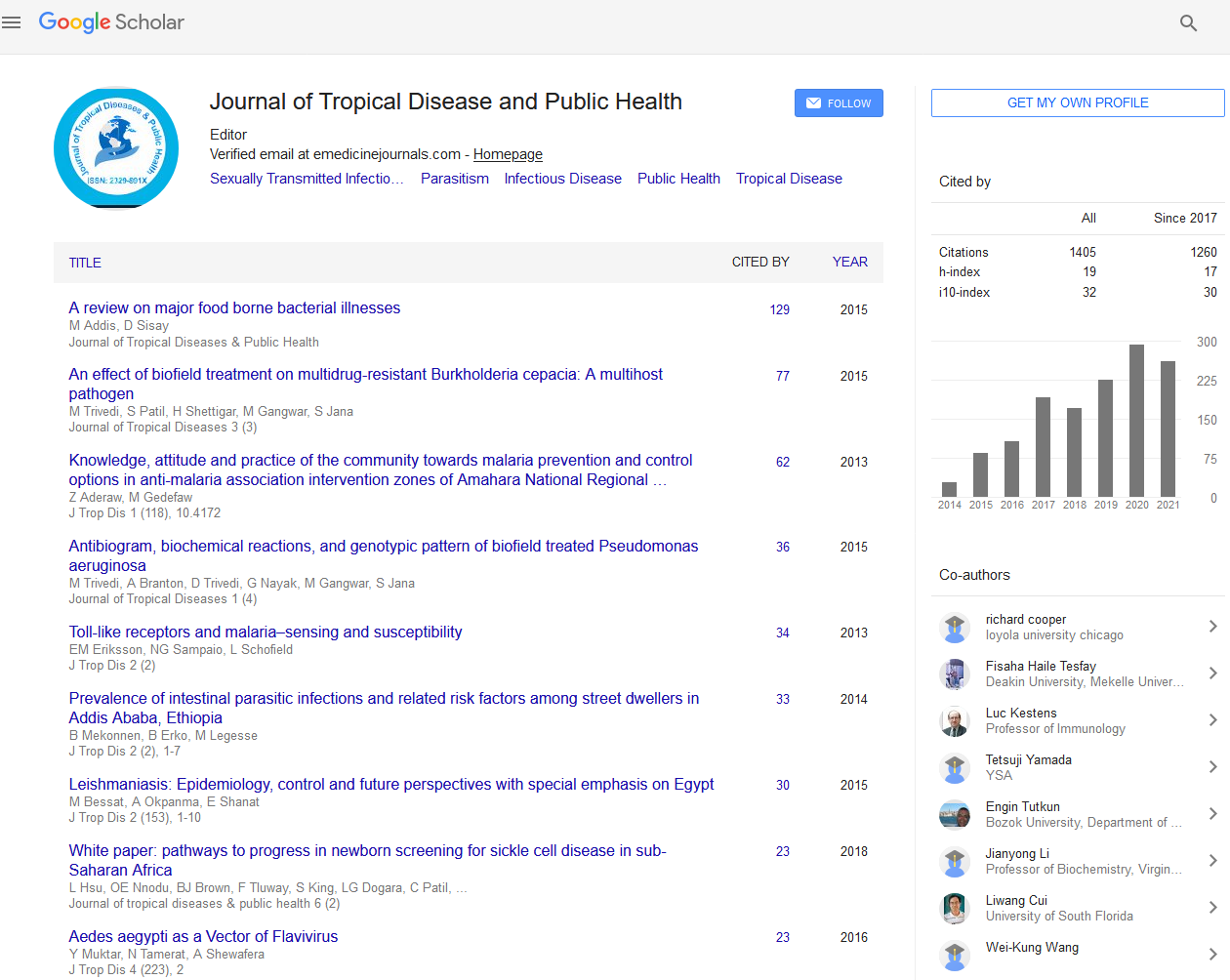Indexed In
- Open J Gate
- Academic Keys
- ResearchBible
- China National Knowledge Infrastructure (CNKI)
- Centre for Agriculture and Biosciences International (CABI)
- RefSeek
- Hamdard University
- EBSCO A-Z
- OCLC- WorldCat
- CABI full text
- Publons
- Geneva Foundation for Medical Education and Research
- Google Scholar
Useful Links
Share This Page
Journal Flyer

Open Access Journals
- Agri and Aquaculture
- Biochemistry
- Bioinformatics & Systems Biology
- Business & Management
- Chemistry
- Clinical Sciences
- Engineering
- Food & Nutrition
- General Science
- Genetics & Molecular Biology
- Immunology & Microbiology
- Medical Sciences
- Neuroscience & Psychology
- Nursing & Health Care
- Pharmaceutical Sciences
Abstract
The Association between Abo Blood Groups and Intestinal Schistosomiasis among Masero Primary School Children in Sanja, Northwest Ethiopia
Ayenew Addisu, Zinaye Tekeste, Amare Teshome, Abebe Alemu, Habte Tesfa, Belete Biadgo and Andargachew Gebeyaw
Intestinal schistosomiasis, caused by the worm Schistosoma mansoni is one of the most common tropical diseases and poses serious health related morbidities. The effect of ABO blood group on intensity schistosomiasis has been studied, but there is discrepancy between the studies. The aim of this study was to assess the association of ABO blood groups and intestinal S. mansoni infection. A school-based cross-sectional study was conducted among Masero primary school children at Sanja, Northwest Ethiopia. A simple random sampling strategy was used to select study participants. All students (410) present during the study period were enrolled. ABO blood groups were typed by agglutination using commercial antisera and stool examination was done using the direct stool examination and Kato–Katz techniques. Finally the data were entered and analyzed using SPSS version 16 statistical software and a multivariate ordinary logistic regression analysis was applied to determine the associations of risk factors. From a total of 410 176 males and 234 females school children, (304 74.1%) were S. mansoni positive. The proportion of S. mansoni infection among ‘AB’ blood group were quit high (91.7%), followed by ‘A’ 78%, ‘B’ 75%) and the lowest infection were noted among O blood group (70.3%). The proportion of S. mansoni decreases with increasing age. In the multivariate analysis, reported AB blood group AOR=4.2; 1.3, 13.7), low level of mothers educational status (AOR=2.2; 1.0, 4.6) and spring water source (AOR=1.7; 1.0, 2.8) were significantly associated with high egg intensity. Individuals with blood group AB are four times more likely to have risk of heavy egg intensity of S. mansoni infection, but blood group ‘O’ participants are less likely to have heavy egg intensity of S. mansoni infection. Hence, masstreatment and health education should be given for school populations that found in the study area.


